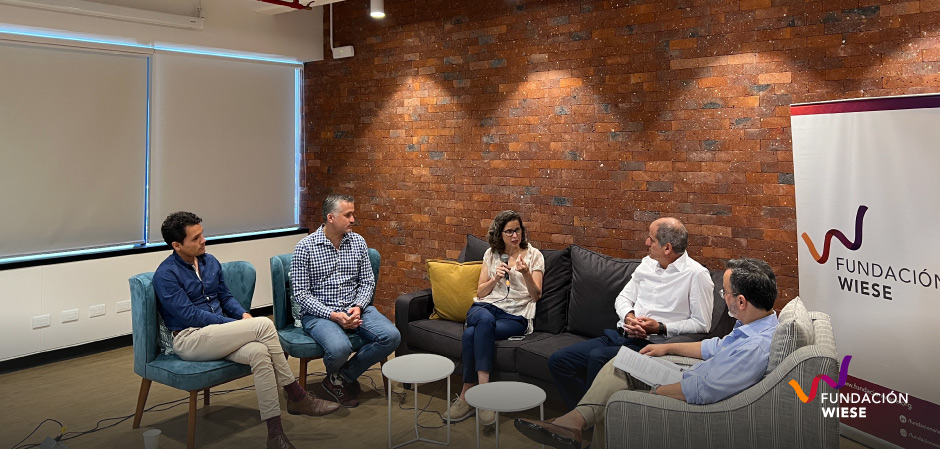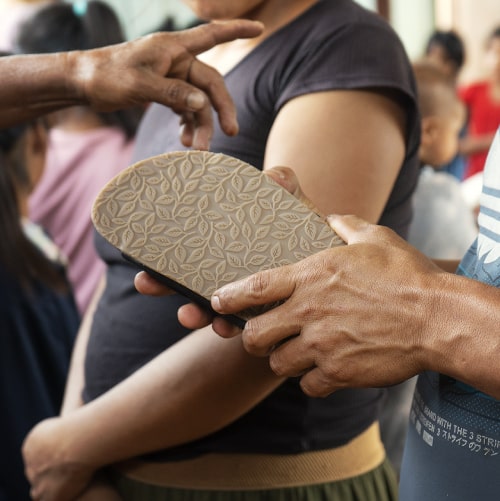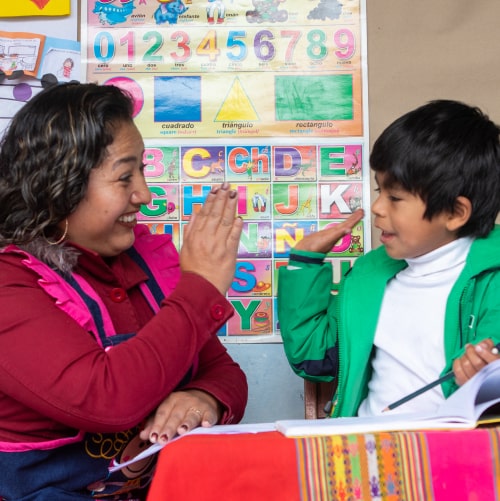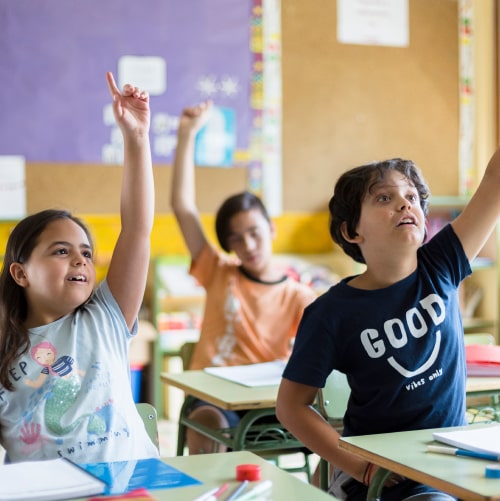- The Wiese Foundation, a non-profit organization, held the First Roundtable of the Entrepreneur Fund, aimed at actors and stakeholders in the Peruvian entrepreneurship ecosystem, with the objective of making alternatives and growth opportunities visible for social entrepreneurs in the country.
- The call for entries for the second edition of the “Entrepreneur Fund” program continues. It will grant financing worth S/150 thousand, training and professional advice to Peruvian social impact ventures.
- It is worth remembering that the INEI (National Statistics and Informatics Institute) estimated that by the second quarter of 2022 there would be just over 3 million companies in Peru and that, according to ENAHO (National Household Survey) estimates, 96% of them would be MSMEs.
According to a report by Ipsos on “Entrepreneurship in times of inflation”, access to financing represents the main barrier to starting a venture in Peru, followed by the country’s economy and the skills gaps of the entrepreneur. On the other hand, 47% of Peruvians have started a business in previous years as a way to react proactively to the impacts of the pandemic, and 52% plan to do so in the near future.
It is possible to do business more consciously, more inclusively and sustainably, through social entrepreneurship. Currently, the entrepreneurial ecosystem still faces several barriers to its growth. To help understand this problem and strengthen Peruvian social entrepreneurship, we held the First Roundtable of the Entrepreneur Fund with the participation of representatives of the allied institutions of the second edition of the aforementioned social innovation program, driven by the Wiese Foundation.
Transversal needs

“We identified a transversal need to all the ventures that we had the opportunity to evaluate and/or accompany. It has to do with providing management skills and abilities to your management team so that they can, firstly, plan the business strategically, secondly, monitor the progress of the execution of what they plan, and thirdly, and very importantly, have the ability to make decisions in an appropriate way throughout the execution”, said Ingrid Claudet, general manager of the Wiese Foundation. “We are going to provide financing, but we would also like to take care of developing those skills and capabilities among entrepreneurs that may allow them to fulfill their growth, so that they are in a solid position that allows them to respond and honor their commitments to the investor,” she said.
For his part, José Salazar, technical secretary of the Pact for Culture by 2030 of UNESCO Peru, underscores that in Peru there is still a deficit of investment in cultural enterprises –which are also social–. This deficit is based on the low valorization of our cultural diversity. However, there are organizations that are banking on expanding financing opportunities: “there is a global trend aimed at cultural enterprises, either as an individual or a company, but also to finance cultural public initiatives that contribute to strengthening this cultural ecosystem”.
The entrepreneurship ecosystem in Peru is growing supported by different actors in different roles. José Deustua, director of UTEC Ventures assures that there are still gaps and one of the most important ones is financing: “we know that Peruvian social entrepreneurs are the ones who pull many cities and regions through. They generate jobs, new businesses, products and services. There is technical assistance for this ecosystem. In very early stages, entrepreneurs approach universities, as they seek a first source of support and training to validate their product, validate their market and have access to government programs and organizations that may bank on the venues”.
On the other hand, Rodrigo Arróspide, CEO of W Capital underscores what are the aspects that an investor evaluates in a business: “the first thing that the investor is going to evaluate is transparency and character. If the company does not have that, it does not move on to the next phase of evaluation. The next thing has to do with the business model and the financial model, here we are talking about profitability and how the entrepreneur is going to pay, whether it comes to financing. And the third point is the willingness of the entrepreneur to let him/herself be helped and advised and to work as a team. Every business will face risks. Entrepreneurs must prepare and be ready to identify them and see how to mitigate them”.
Events like this allow it to make visible the role of the business world vis-à-vis the opportunities to contribute to a better quality of life for thousands of Peruvians.
The moderation of this first panel was in charge of Vicente León, Vice-Dean of the School of Economics and Finance of Universidad del Pacífico, and was attended by the representatives of the allied institutions of the Entrepreneur Fund, Ingrid Claudet, general manager of the Wiese Foundation; José Salazar, technical secretary of the Pact for Culture by 2030 of UNESCO Peru; José Deustua, director of UTEC Ventures; and Rodrigo Arróspide, CEO of W Capital. Based on their diverse experiences, they shared with the attendees their vision on the development of the social entrepreneurship ecosystem in Peru, as well as the opportunities that are currently presented for their development and financing.
Four years ago, the Wiese Foundation was the first Peruvian foundation to create a comprehensive social innovation program, the “Entrepreneur Fund“. The call for entries to its second edition, whichwill finance Peruvian social enterprises with S/150 thousand, also providing training and professional accompaniment for 18 months, goes until next February 15.
If you wish to apply to the Entrepreneur Fund, do it now, here: https://fondoemprendedor.vform.pe/applicants/sign_up









